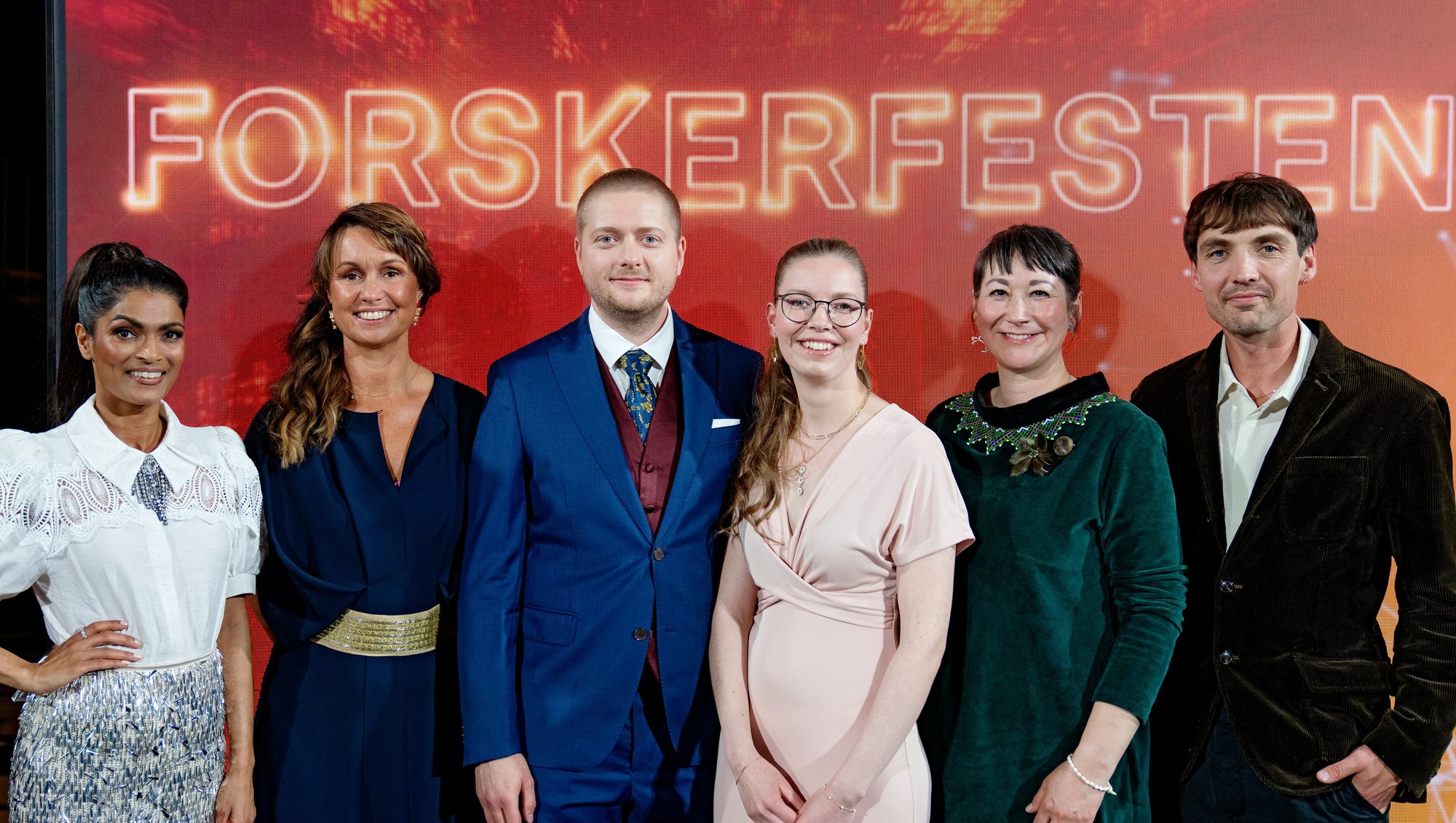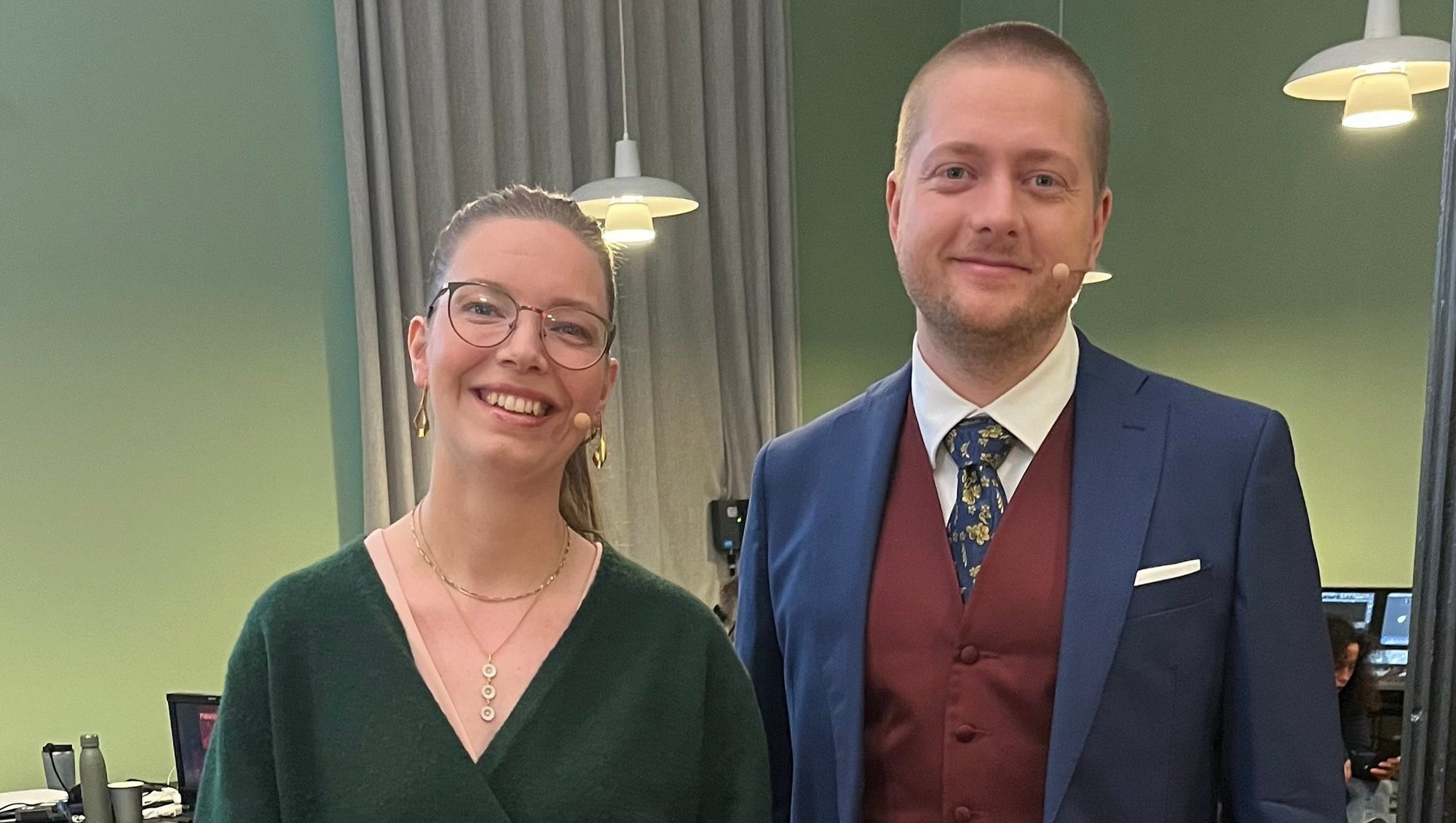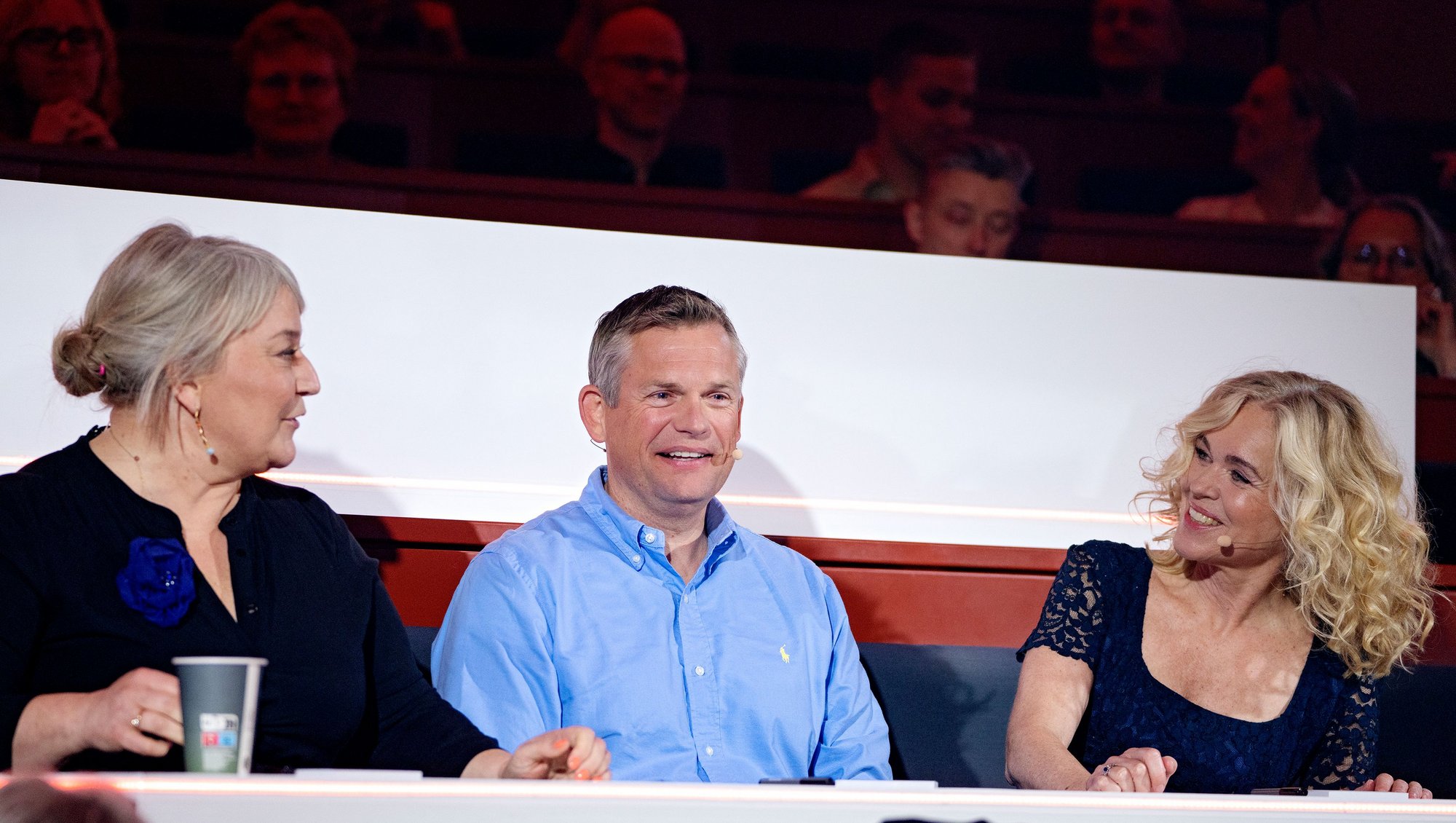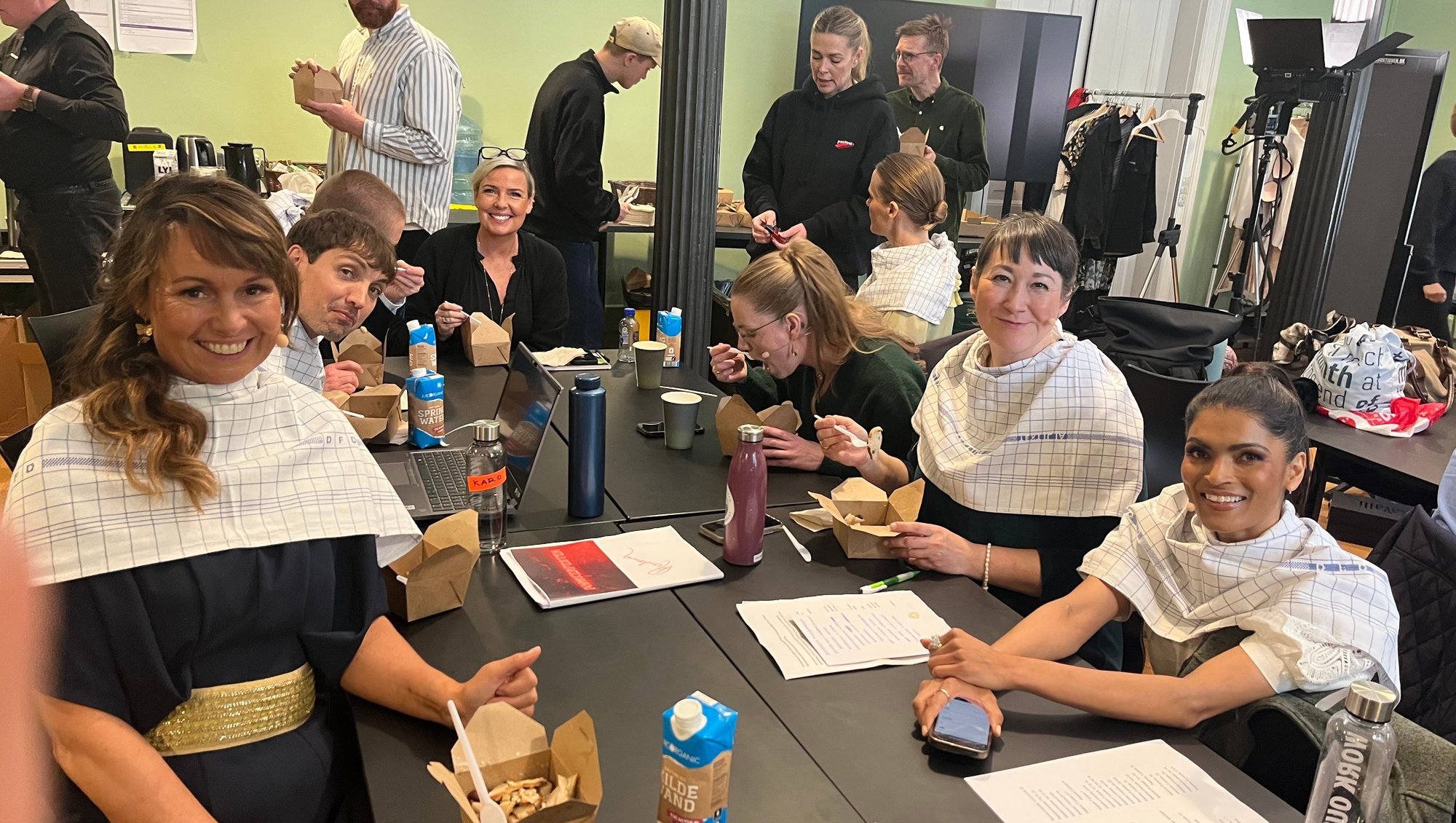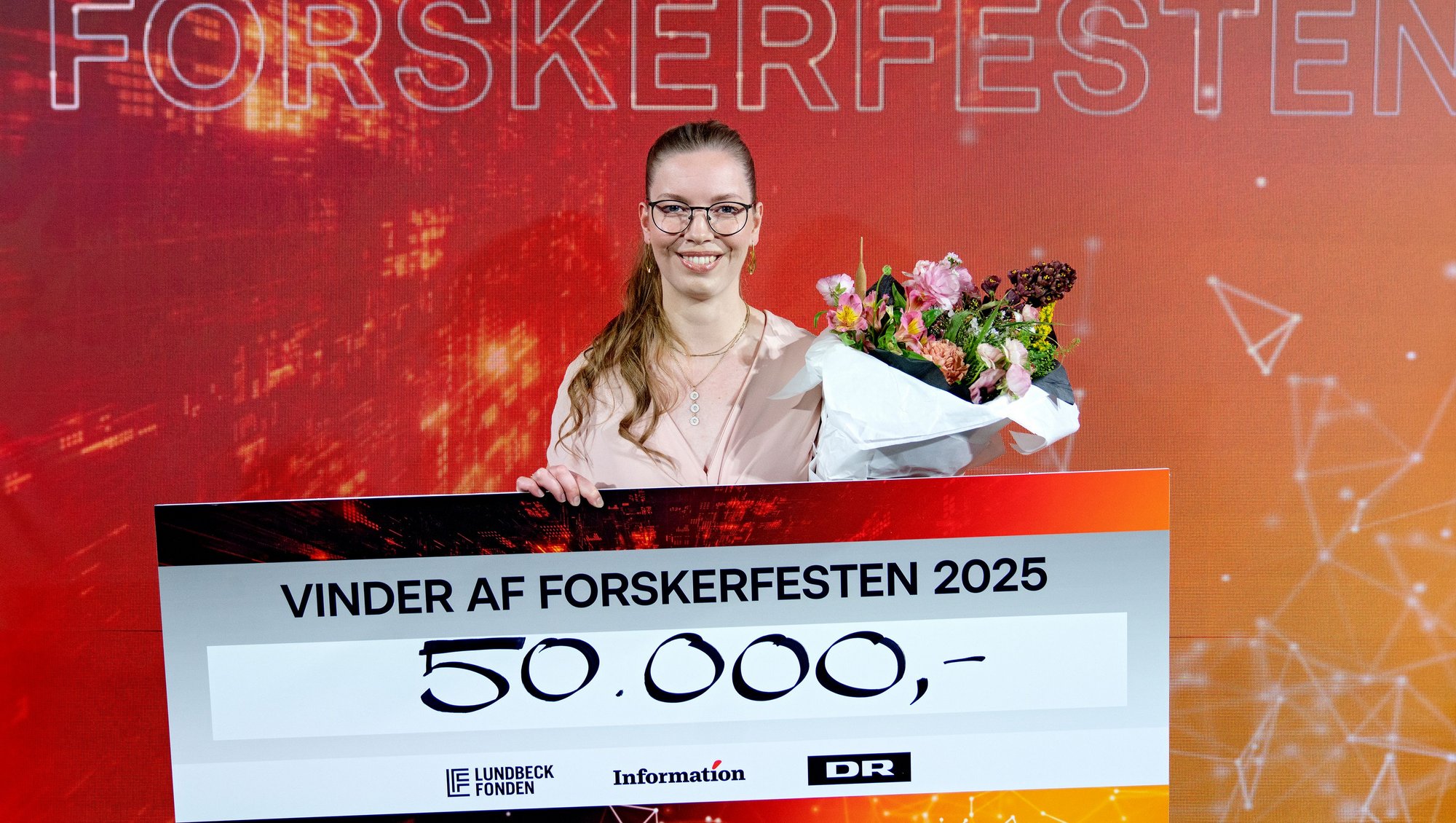Parkinson’s in primetime: Nanna Møller Jensen wins Forskerfesten 2025
Under the bright spotlight in the auditorium at Frederiksberg Campus, PhD and postdoc Nanna Møller Jensen from the Department of Biomedicine and DANDRITE stepped forward and took the stage. Three minutes later, she had won Forskerfesten 2025.
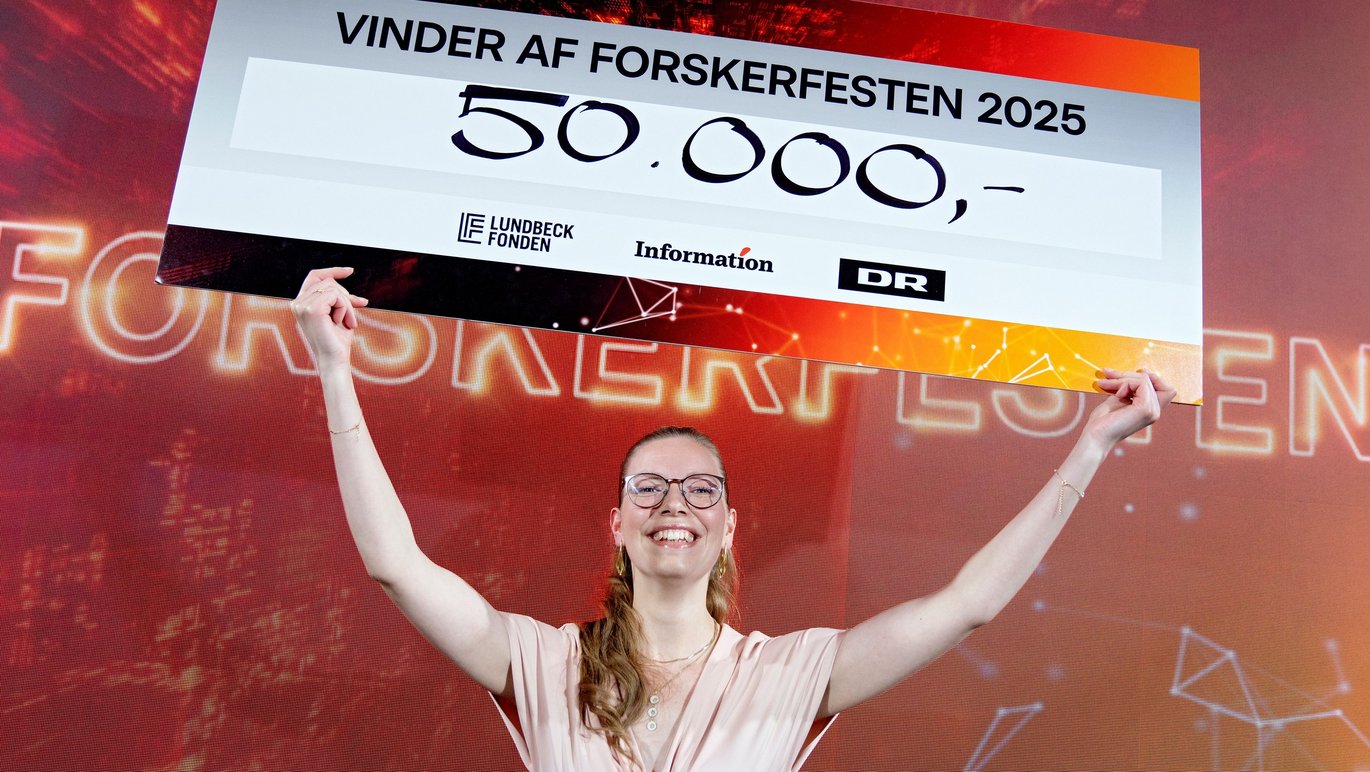
“I was actually completely sure that it wouldn’t be me who won,” laughs Nanna a few days after her victory in the big science communication competition.
“Andreas Mogensen, who was one of the judges, said something about the winner having communicated with poise and humor - and I just stood there thinking: ‘It can’t be me!’”
But it was.
With her presentation on invisible protein clumps in Parkinson’s disease, Nanna Møller Jensen convinced both the audience and the panel of judges, which, in addition to Andreas Mogensen, included Minister for Higher Education and Science Christina Egelund and Professor of Astrophysics Anja C. Andersen.
“For over 200 years, we’ve known that Parkinson’s disease kills nerve cells in the brain, but we haven’t understood why. I talked about my PhD project, which looks at the invisible protein clumps that appear much earlier in the disease than the ones we’ve been able to see until now,” explains Nanna Møller Jensen.
Her research is built on close collaboration with patients - and requires brains from deceased Parkinson’s patients.
“Obviously, we can’t just cut into people’s brains while they’re alive, so a large part of our knowledge comes from studying what has happened afterward. It’s both a privilege and a big responsibility to work with that material,” she says.
Forskerfesten 2025:
- previously known as the PhD Cup
- held annually and broadcast on DR1 and DRTV
- a collaboration between DR, the newspaper Dagbladet Information, and the Lundbeck Foundation
- selects five newly graduated PhD researchers for the final, where they present their research in three minutes
- awards a prize of DKK 50,000 to the winner
- this year’s judging panel consisted of astronaut Andreas Mogensen, Minister for Higher Education and Science Christina Egelund, and Professor of Astrophysics Anja C. Andersen. The host was Ulla Essendrop.
Several years of research boiled down to three minutes
Forskerfesten is not an ordinary scientific presentation - it’s a TV production, a colorful show, and a competition that is broadcast on television during prime time.
“You submit an application with your PhD thesis, a communication text, and a video. Then DR and Information, together with a panel of judges, select the five finalists,” explains Nanna Møller Jensen.
She had followed the show on TV for several years, but this year she decided to give it a shot.
“I thought: Would I actually be able to communicate my research to all of Denmark in just three minutes? It was a fun challenge that I thought could strengthen my communication skills.”
She signed up, made it through the selection process, and then several weeks of intense preparation began.
“We had a full workshop day with presentation training. I had to reschedule a flight because I was going straight to a conference in Austria afterward. And there was a day with DR to shoot the video, a day with journalists from Information, and a day with photographers. The weeks leading up to the final were pretty wild,” says Nanna Møller Jensen.
Body language instead of slides
For a researcher who normally presents with PowerPoint and technical terms, transitioning to a TV format was quite a challenge.
“I really learned a lot about using body language; big gestures, eye contact, speaking without relying on slides. It was completely new for me to use my body in that way,” says Nanna Møller Jensen.
She laughs as she recalls the feedback from a fellow researcher on her presentation:
“Several of my colleagues in the field thought it was wild that I could give a three-minute presentation without mentioning the name of a single protein. But the point was to make it understandable, not to impress with scientific jargon.”
A big media machine
Recording day was also a bit of a race, Nanna Møller Jensen recounts.
“We met at 1:30 PM, ran through our presentations, went to makeup, had a bit to eat, did a dress rehearsal, and then the show started shortly after. There was so much going on that I didn’t even have time to get nervous,” she says, and continues:
“There was a good atmosphere among the participants, and I think it only really hit me that it was a competition when we were standing backstage, and the judges were deciding the winner.”
When her name was called out, it all felt a bit surreal.
“Standing there with flowers and a giant check - I went around for days afterward thinking: Did that really happen?” she says with a smile.
According to the researcher, winning Forskerfesten has already had an impact.
“I’ve received many emails from patients and relatives following my appearance on the program. They ask how they can help the research, how to donate their brain, etc. It’s really touching that we’ve reached so many people and that I’ve had the chance to share my research with all of Denmark.”
“I’ve gained a whole new skill set”
When asked if she would recommend others participate in Forskerfesten next year, the answer comes quickly:
“Yes! Absolutely. But spend time on the application. I got really good help from our communications team at DANDRITE to make the text sharp and clear. That definitely makes a difference,” she says, and continues:
“I’ve gained a whole new skill set when I stand in front of many people. I went off to a conference right after Forskerfesten, and I could feel how I now noticed my own and others’ presentations in a new way - whether people pause in their speech, look up, avoid speaking too fast, etc. I’ve definitely gained new tools that I can use going forward.”
After a period focused on communication, Nanna Møller Jensen is now back in the lab at DANDRITE. She hopes that her research will eventually pave the way for new diagnostic methods and treatments for Parkinson’s.
“We can’t cure the disease yet. But the earlier we can detect changes in the brain, the greater the chance that one day we can halt Parkinson’s before it really takes hold.”
Contact
Postdoc and PhD Nanna Møller Jensen
Aarhus University, Department of Biomedicine – DANDRITE
Phone: +45 60 22 65 53
Email: nanna.mj@dandrite.au.dk
